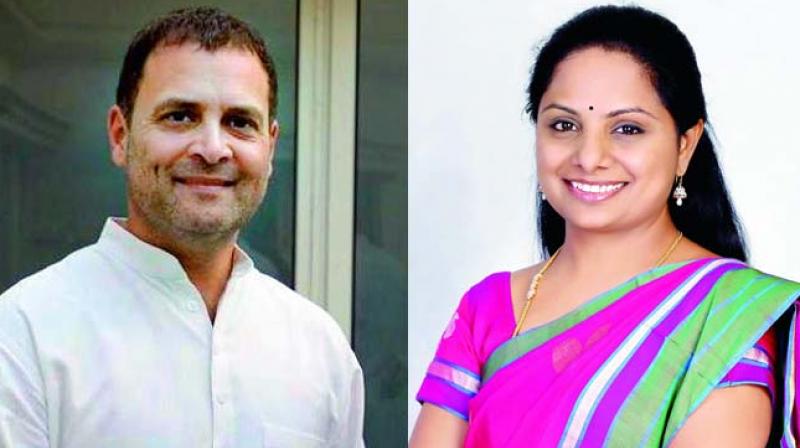Is it game over for dynasty politics?
In the recent results, young leaders backed by their families met with a shocking defeat.

Although leaders are yet to review the reasons behind their defeat in the 2019 Lok Sabha and State Assembly polls, they had to endure another uphill task. Fathers and fathers-in-law, who fielded their successors, and on whom the candidates had pinned hopes, failed to make an impact in the elections.
While a lot was expected from the “Gen Next” in a bid to put up a spirited show, especially after the massive young voter turnout, young leaders fumbled at the poll ring, thereby putting their fathers in a fix.
From Nara Lokesh to Rahul Gandhi and from Aditi Gajapathi Raju to K. Kavitha or from Nikhil Kumaraswamy to Ganti Harish Madhur among others, these young leaders couldn’t salvage their draw and suffered defeat.
As a matter of fact, this has been an election where young leaders faced a real electoral challenge.
Vinod Reddy, General Secretary, Telangana Pradesh Congress Committee (TPCC) sees this phenomenon as a ‘reality check’ for the party and its leaders. He now agrees that candidates cannot bank on their fathers’ legacies. “Gone are the days when people would vote you to power based on your political background. You can no longer rely on your family laurels, and that’s what people’s verdict clarifies. Contesting leaders need to work harder and establish a dialogue with the public,” explains Vinod.
In the biggest upset among the contestants for the Lok Sabha seats in Telangana, Nizamabad’s sitting MP K. Kavitha, daughter of Telangana Chief Minister K. Chandrasekhar Rao, lost the seat to the BJP candidate Arvind Dharmapuri.
Similarly, Rahul Gandhi, Nara Lokesh, and several other young leaders, like Sri Bharat Mathukumilli (Balakrishna’s second son-in-law), Ganti Harish Madhur (son of Balayogi), J.C. Pavan Reddy (son of J. C. Diwakar Reddy), met with defeat in the recent polls. Political analyst V. Prakash feels that unlike their elders, young leaders lack patience and that has cost them dearly. He believes that their restlessness could set a dangerous precedent for their respective parties. “Fundamentally, these leaders lost because of the lack of poll management. They believed that their family legacy would see them through. Moreover, they conducted their election campaigns like a corporate set up. This resulted in a disconnect between the people and these leaders,” Prakash explained. “Availability in the constituency and the keenness to work for the people is what India’s electorates are looking for in a leader, which the losing candidates lacked.”
Despite the fact that these young leaders had everything from money, power, and influence to cadre support and database at their disposal, their defeat was inevitable. Analyst Bandaru Srinivas Rao shared an interesting perspective on the subject. Expressing surprise over the shift in pattern, he opined that perhaps people have begun to dislike dynasty politics after Narendra Modi’s coming to power. “I think this was one of those elections where people decided to get a break from dynasty politics. Hope the young leaders treat this as a learning experience,” he said.

